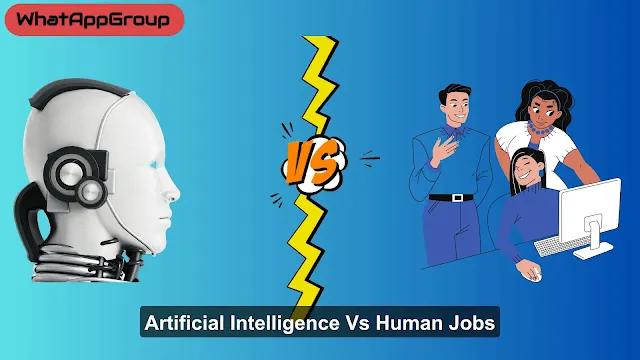The rise of Artificial Intelligence (AI) has sparked both enthusiasm and concern among the global workforce. While AI promises to revolutionize industries, there are concerns about its potential to eliminate jobs. In this article, we will explore the truth behind the impact of AI on jobs, considering the transformative potential of this technology and its effects on employment across various sectors.
Understanding AI and its Advancements
AI is a branch of computer science that aims to create machines capable of performing tasks that typically require human intelligence. Machine learning, natural language processing, and deep learning are some of the subfields that have significantly advanced AI capabilities.
AI's Impact on Jobs
1. Automation: AI's ability to automate repetitive and mundane tasks has led to concerns about job displacement. Jobs involving routine manual or cognitive tasks are more susceptible to automation, impacting sectors like manufacturing, data entry, and customer service.
2. Augmentation: On the other hand, AI can augment human capabilities, enhancing productivity and efficiency. This symbiotic relationship creates new job opportunities in AI development, data analysis, and human-machine collaboration.
3. Skill Shift: As AI technology advances, the demand for certain skills changes. While some jobs may become redundant, new roles emerge that require expertise in AI development, data analytics, and creative problem-solving.
4. Industry-Specific Impact: The impact of AI varies across industries. For example, in healthcare, AI assists in diagnostics and drug discovery, while in finance, it automates tasks like fraud detection. However, in both cases, human expertise remains vital.
5. Job Transformation: Rather than outright job destruction, AI often leads to job transformation. Tasks that can be automated are handed over to AI systems, enabling employees to focus on more strategic and creative aspects of their roles.
6. Economic Growth: AI's efficiency gains can drive economic growth, leading to the creation of new jobs in emerging sectors. This pattern has been observed throughout history, with technology driving job market shifts.
7. Reskilling and Upskilling: To adapt to the changing job landscape, reskilling and upskilling become crucial. Continuous learning and acquiring new skills allow individuals to remain competitive in the job market.
Safeguarding Jobs in the Age of AI
While AI has the potential to reshape the job market, there are steps that individuals, organizations, and governments can take to safeguard jobs and ensure a smooth transition:
1. Emphasize Lifelong Learning: Encourage a culture of lifelong learning, promoting continuous education and upskilling to adapt to changing job demands.
2. Invest in Reskilling Programs: Organizations can invest in reskilling programs for their employees, preparing them for new roles in the era of AI.
3. Foster Collaboration: Promote collaboration between humans and AI systems, emphasizing the complementary nature of human and machine intelligence.
4. Focus on Soft Skills: As AI takes over certain tasks, soft skills like creativity, emotional intelligence, and critical thinking become increasingly valuable.
5. Support Entrepreneurship: Encourage entrepreneurship and support the creation of new businesses and industries that leverage AI technology.
Conclusion
The truth about AI's impact on jobs lies in a nuanced understanding of its potential to both disrupt and create opportunities. While automation may lead to job displacement in some areas, AI also opens up new possibilities, transforming job roles and generating novel career paths. By embracing lifelong learning, fostering collaboration, and emphasizing soft skills, individuals and organizations can navigate the changing job landscape effectively. Ultimately, the responsible and strategic integration of AI will lead to a future where technology and human potential harmoniously coexist, unlocking innovation and societal progress.


